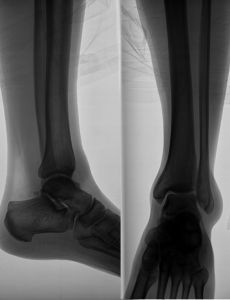Liner v. Colvin, a federal disability case from the United States Court of Appeals for the Eighth Circuit, involved a review of the residual functioning capacity (RFC) of a claimant who was denied Social Security Disability Insurance (SSDI) benefits.
 Claimant first filed an application for SSDI benefits with the United States Social Security Administration (SSA), and his application was denied. At this point, he filed a written appeal. This written appeal was denied, but it should be noted that nearly every written appeal of a denial of benefits is denied as well.
Claimant first filed an application for SSDI benefits with the United States Social Security Administration (SSA), and his application was denied. At this point, he filed a written appeal. This written appeal was denied, but it should be noted that nearly every written appeal of a denial of benefits is denied as well.
The reason most if not all written appeals are denied is because they are evaluated as part of peer review process. This means that a co-worker of the employee who denied the application will be asked to decide if the denial was proper. It is hard to imagine how good the workplace environment would be if one worker overturned the decision of the coworker in the next cubicle over. This is not a supervisor doing the appeal, but a worker at the same pay grade.
At this point, he appealed again and was eventually granted a hearing before an administrative law judge. The reason he was claiming disability was because he injured his right shoulder in 1990. This injury caused him to have continuing trouble moving his arm over the years, and, by 2012, he had no grip strength in his hand, according to his testimony. He also could not move his arm beyond 90 degrees.
The ALJ ordered him to see a doctor hired by SSA, and that doctor determined he had mild degenerative issues and a limited range of motion, but he also concluded there was no muscle damage or sensory issues. His examination also noted normal coordination and function of the arm and a normal grip strength.
Based upon this testimony from the doctor at the hearing, ALJ determined claimant had a residual functioning capacity that allowed him to work, or as SSA calls it, engage in substantial gainful activity, and denied the appeal.
At this point, claimant appealed to the United States District Court. This is the first step to appeal a Social Security Disability Insurance benefits denial outside of SSA’s jurisdiction. However, it should be noted that that, in some cases, there is an in agency review of an ALJ’s decision, but that is not always an option. You should speak to an experienced Boston Social Security disability benefits attorney about the facts of your particular case.
At the district court level, the court affirmed ALJ’s decision, so Plaintiff appealed to the United States Court of Appeals for the Eighth Circuit. This is the highest court of appeals other than the United States Supreme Court. The court reviewed the facts on a de novo basis, meaning it did not consider ALJ’s findings but instead made its own determination. Ultimately, the appeals court agreed that ALJ’s findings were supported by adequate evidence and came to the same conclusions.
If you are seeking Social Security Disability Insurance benefits in Boston, call for a free and confidential appointment at (617) 777-7777.
Additional Resources:
Liner v. Colvin, March 7, 2016, United States Court of Appeals for the Eighth Circuit
More Blog Entries:
Hanson v. Colvin: A Critical Look by a Court of Appeals on a Denial of Benefits, August 14, 2014, Boston Disability Lawyers Blog.
 Massachusetts Social Security Disability Lawyers Blog
Massachusetts Social Security Disability Lawyers Blog

